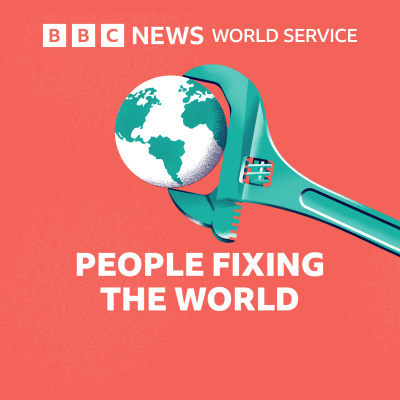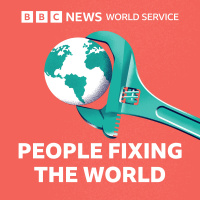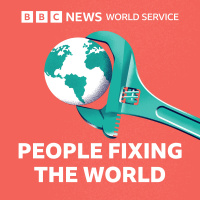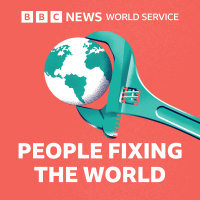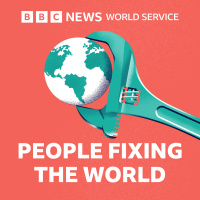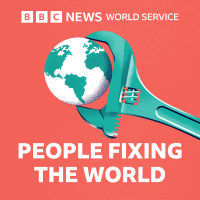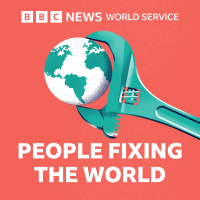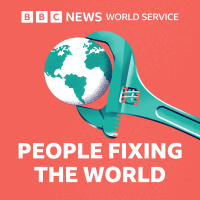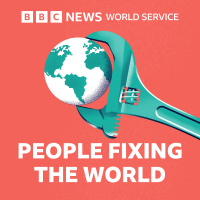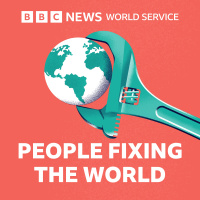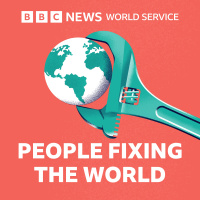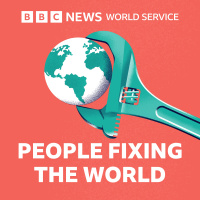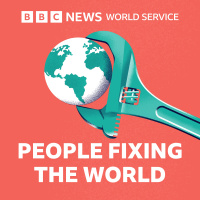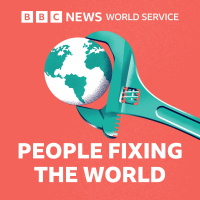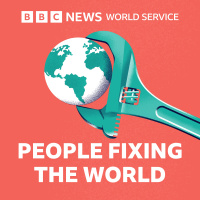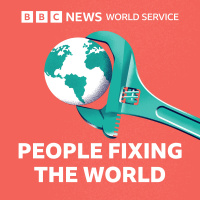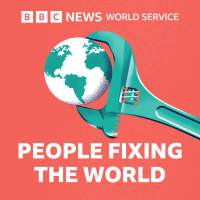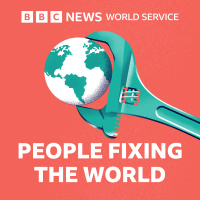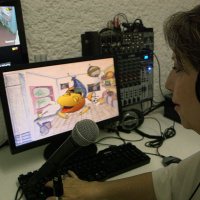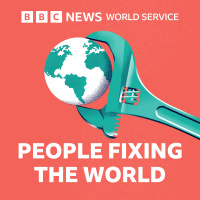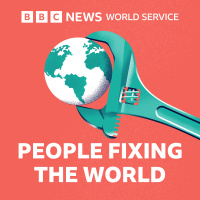Sinopsis
Brilliant solutions to the worlds problems. We meet people with ideas to make the world a better place and investigate whether they work.
Episodios
-
The Former Neo-Nazi Helping Others To Quit
21/11/2017 Duración: 23minA retired police detective and a former neo-Nazi leader may seem like an unlikely partnership. But Dr Bernd Wagner and Ingo Hasselbach have taken their past differences and used them as the basis for making a real change. When Hasselbach quit neo-Nazism over two decades ago he and Wagner, who had once arrested him, realised they had a shared dream: to help far right extremists change their ways. Presenter: Tallulah Berry Reporter: Harriet NobleImage: Ingo Hasselbach / Credit: BBC
-
How Iceland Saved Its Teenagers
14/11/2017 Duración: 23minIn 1998, 42% of Iceland’s 15 and 16 year-olds reported that they had got drunk in the past 30 days. By 2016, though, this figure had fallen to just 5% and drug use and smoking had also sharply declined. The action plan that led to this dramatic success is sometimes called “the Icelandic Model” – and strikingly, it does not focus on tighter policing or awareness campaigns to warn children off bad habits. Instead, top researchers collaborate closely with communities on initiatives like parental pledges and night-time patrols after dark, while the government invests in recreational facilities. But is being a teenager in Iceland still fun?Presenter: Harriet Noble Reporter: William KremerImage: Icelandic teenagers / Credit: BBC
-
The Missing Maps
07/11/2017 Duración: 22minThousands of places in the world don't officially exist on a map. If you're not on a map, it can have implications for how people find you - in times of disaster for example. But a project called Missing Maps is solving that, by using the power of volunteers to make 'invisible people, visible'. At a mapathon in London, volunteers are sitting around their laptops plotting the world. And then in Malawi, mapping experts are putting in essential details to the map. World Hacks travels there to see the finished maps and what impact they could have on communities living there. Reporter: Charlotte Pritchard Presenter: Dougal Shaw Producer: Nick HollandImage: People looking at a map / Credit: BBC
-
The Town Where Public Toilets Are Everywhere
31/10/2017 Duración: 22minto stop people getting caught short. What do you do if you're out and about and can't find a public toilet? Do you sneak into a cafe and hope no one notices, buy something you don't want just for the privilege of using the facilities, or hold it in until you can get home? The number of public toilets around the world is decreasing, making this an increasingly common dilemma. But not in many parts of Germany thanks to a scheme called "Die Nette Toilette", or the nice toilet. Local authorities pay businesses a monthly fee to let anyone wonder in and go to the loo for free. Not only does this dramatically increase the number of available toilets, it leads to big savings for the public purse. Written and produced by Harriet Noble Presented by Dougal ShawImage: Interior of a German public toilet / Credit: BBC
-
Addressing the World in Three Words
24/10/2017 Duración: 23minAround 75% of the world's population, approximately 4 billion people, don't have an address. Take a country like Mongolia, with a largely nomadic population, where street names and postcodes can be few and far between. But that could all be changing thanks to just three words. Mongolia's Postal Service was the first in the world to sign up to What3Words, an idea from a British former music executive fed up of bands and equipment constantly getting lost. He's divided the entire world into 3m squares and given each one a different three word phrase, and it could mean that everyone in the world will soon have an address. Presenter: Tom Colls Reporter / Producer: Harriet NobleImage: How What Three Words divides up the world / Credit: Google Maps
-
How Iceland is Fighting the Gender Pay Gap
17/10/2017 Duración: 23minAlthough Iceland is thought to be the best country in the world for gender equality, it lags behind in one metric: the gender pay gap. So a decade ago the country's unions and business community came together to try something new. They devised a management standard to help organisations implement equal pay. Now the government has gone a step further and introduced a law that from January will force companies to adopt the standard or face fines. So is this small island nation set to be the first in the world to equalise pay?Presenter: India Rakusen Reporter: William KremerImage: Illustration of two Icelandic people / Credit: BBC
-
Viking Therapy?
10/10/2017 Duración: 23minIt looks like the set of Game of Thrones. Once a year Wolin in Poland hosts a huge Viking festival - with a twist. Enthusiasts come from around the world not just to re-enact battles, but to win them, fighting competitively. One organiser of these battles has found that this Viking scene can offer positive benefits to men who have been defined by violence in their past, and are now looking for a way to escape. Presenter: Sofia Bettiza Reporter: Dougal ShawImage: A modern Viking gets ready for a battle / Credit: BBC
-
How Cervical ‘Selfies’ are Fighting Cancer in The Gambia
03/10/2017 Duración: 23minIt’s not usually a good idea to take selfies of your private parts, but what if those photos could save your life? A new, tiny medical device is being used across Africa to detect cervical cancer from a mobile phone photograph. In Gambia, doctors are often in short supply, but nurses, midwives and smartphones are widely available, allowing patients to be diagnosed and treated remotely. In sub Saharan Africa, cervical cancer is the number one cause of cancer deaths in women, but it takes years to develop and can be treated for under $30 if caught early. Can cervical selfies get women talking about a silent, unseen killer?Presenter: India Rakusen Reporter: Amelia Martyn-Hemphill.Image: Nurse using the EVA system in Gambia / Credit: BBC
-
How To Make Sushi From Methane Gas
26/09/2017 Duración: 23minHumanity’s hunger for meat is not good for the planet. Every cow, pig and fish that farmers rear has an environmental cost – particularly in the land and water resources it takes to grow the food the animals eat. But one entrepreneur is developing a solution – create animal feed from methane gas. Using methane-eating bacteria, they have developed animal feed that uses a fraction of the land and water of plant-based animal feed. Reporter: Charlotte Pritchard Presenter: Sahar Zand Series Producer: Tom CollsImage: Sushi being picked up with chopsticks / Credit: 4kodiak / Getty Images
-
When Local Currencies Go Digital
19/09/2017 Duración: 23minLocal currencies – money you can only spend at small local businesses – aim to keep money in their neighbourhood and out of the hands of big corporations and their shareholders. Now they are going digital, with local currencies that live only on smartphone money apps. Could it make them a financial force to be reckoned with? Presenter: India Rakusen Reporter: Dougal ShawImage: A local digital currency working on a smartphone / Credit: BBC
-
Condom Lifesavers and Voices for the Voiceless
12/09/2017 Duración: 23minEach year around 100,000 women die due to heavy bleeding after giving birth. But help is at hand from an unexpected source: condoms. World Hacks goes to a maternity hospital in Kenya to speak to the medical staff using this super-cheap kit that is saving lives. Also on the programme, the US start-up that is asking volunteers to donate their voices, then transforming them into personalised, digital voices for people with degenerative diseases.Reporters: Harriet Noble and Amelia Martyn-Hemphill Presenter: India RakusenImage: Midwife Anne Mulinge / Credit: BBC
-
The Dutch Antibiotic Revolution
05/09/2017 Duración: 23minAntibiotic resistant superbugs are a huge problem both in humans and in animals. Many animals reared for food are routinely fed antibiotics to prevent infections. Farmers across the world do it to protect their livestock and to safeguard their incomes. But some bugs are becoming resistant to these drugs because of their overuse – fuelling the rise of animal “superbugs” like MRSA that could potentially spread to humans. This means that animals and people can die from common infections because the antibiotics no longer work. In the Netherlands, the story of one sick little girl caused pig farmers to wake up to a huge pig MRSA infection that was spreading to humans. Recognising the problem, a couple of pig farmers started a movement that has resulted in the country cutting their antibiotics use in animals by 65% - and, crucially, without affecting their profits. World Hacks investigates how a group of pig farmers solved a massive problem in The Netherlands and whether other countries should urgently follow suit.
-
How to Get Blood Where it is Needed
29/08/2017 Duración: 23minThe availability of blood for transfusions saves lives after difficult births and operations. But in much of the developing world, hospitals have a blood shortage. One entrepreneur in Nigeria is working on a solution. She has developed an app that connects blood banks to hospitals, and has built a network of moped drivers to ferry blood around Lagos, the largest city in the country. World Hacks investigates whether her solution can save lives. Also on the programme, the designers of a new “city tree” – large structures filled with moss that attempt to absorb pollution from the air. Presenter: Mukul Devichand Reporters: Stephanie Hegarty and Dougal ShawImage: Moped driver in Lagos / Credit: BBC
-
Pakistan’s Laptop Female Doctors
22/08/2017 Duración: 23minHow do you help female doctors get back to work when they've given up medicine to look after their families? It's a particular problem in Pakistan where the majority of medical graduates are women who stop working after they get married. Now a scheme has been set up employing them to hold video clinics with patients over the internet, enabling them to work flexibly from home. What's more they're aiming to improve access to health care in Pakistan by targeting their 'computer screen clinics' at people living in deprived parts of the country, where the shortage of female doctors is most acute.Produced by Nick Holland Presented by Tallulah BerryImage credit: BBC
-
Urban Cable Cars
15/08/2017 Duración: 22minIs a new urban cable car in Mexico more than just a means of public transport? As well as ferrying thousands of people a day, it's been strategically located to link up the poorest neighbourhoods to more affluent parts of the city. It's hoped it will bring growth to a forgotten district, reduce crime and become a means of bridging the social divide. World Hacks travels to Mexico City to see if it can achieve those goals and understand why cities are opting for this usual form of transport.Presenter: Sahar Zand Producers: Elizabeth Cassin and Nick HollandImage: Cable cars above Mexico City / Credit: BBC
-
Does Universal Basic Income Work?
08/08/2017 Duración: 23minAround the world, governments and researchers are experimenting with the introduction of universal basic income. From Finland and Spain to India, the idea of giving every citizen – whether working or not – a set amount of money per month is gaining momentum. It’s claimed to be a fairer and more efficient way of running a welfare system, but we’re only just starting to understand what actually happens when you introduce a basic income for everyone. We look at the evidence and try to establish whether it is an idea whose time has come. Presenter: Mukul Devichand Producer: Jo MathysImage: An Indian man counts currency / Credit: Sajjad Hussain / AFP / Getty Images
-
The Teachable Moment
01/08/2017 Duración: 23minDarius has been shot three separate occasions, but the third time was the last. He was met at his bedside by a stranger, who changed his life forever.Victims of violence are, far more likely to be shot, stabbed or violently assaulted a second or third time - as the perpetrators of violence try to silence the victim.In San Francisco, where Darius lived, specially trained case managers visit victims of violence at their bedsides in hospital and work with them to break that cycle of violence, offering practical advice and specialist services to the patients.They claim that speaking with victims of violence immediately after an attack, when they are experiencing a 'teachable moment' they have a far greater chance of changing the patient's life forever.Reporter Sam Judah meets Darius at the site of his third and final shooting, tracing his journey to the hospital, and his meeting with the youth worker who helped him turn his life around.Image: Darius / Credit: BBC
-
Mexico's Cartoon Therapists
25/07/2017 Duración: 22minHow do you get children who're victims of emotional abuse or physical harm to open up about what's happened to them? In Mexico a psychologist, Julia Borbolla, encourages them to have a one-to-one chat with a cartoon alien that appears on a video screen in a room near her office. What the children don't realise is Julia hears every word of their conversation with the animated creature because she's secretly controlling it from the room next door.She says children are more likely to reveal sensitive information to the cartoon alien than if they were face-to-face with a real person. World Hacks travels to Mexico City to assess whether the tool works and to meet people who're now operating it in public hospitals, women's shelters and within the country's judicial system.(Photo: Psychologist Julia Borbolla Credit: BBC)
-
Cutting Cow Farts to Combat Climate Change
18/07/2017 Duración: 19minMethane emissions from the burps and farts of livestock accounts for around 15% of global greenhouse gas emissions. But the trick to reducing this could lie with some of Kenya’s smallholder farmers. By using very simple techniques to transform the way they manage their soil and animals, dairy farmers are helping their cows emit less methane per litre of milk they produce. And it’s all being paid for by big polluters, in what could become a major form of carbon offsetting. Is this a new frontier in the fight against climate change? World Hacks has been to rural Kenya to find out. Presenter: Vincent Ni Reporter: Harriet Noble
-
Thailand’s Disease Detectives
11/07/2017 Duración: 22minWorld Hacks goes to Thailand to meet an army of volunteers on the front line in the fight against dangerous diseases, like Ebola and bird flu.Nearly 100 years ago Spanish Flu infected a third of the world’s population and killed about 50 million people. With increased international travel, growing populations and environmental damage, experts warn that viruses now have the potential to spread faster, and we could be on course for another pandemic, with devastating consequences. Pandemics often originate in places where animals and people live in close contact, making it easy for animal diseases to spill over into humans, and where health systems may not be able to pick up on threats and respond quickly. In rural Thailand, 75% of people keep animals in their back gardens, making it hard to keep track of new outbreaks. In 2004, a strain of bird flu swept through the country, as well as Vietnam, Cambodia and Indonesia, infecting more than 125 people and killing about half of them. Vets at Chiang Mai University
